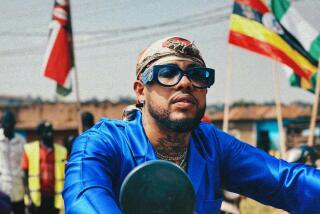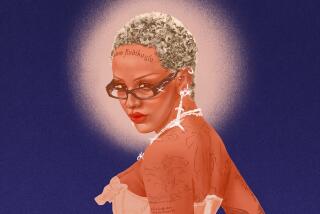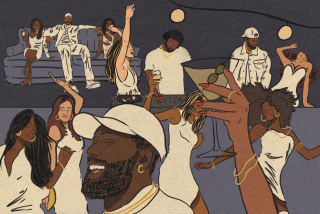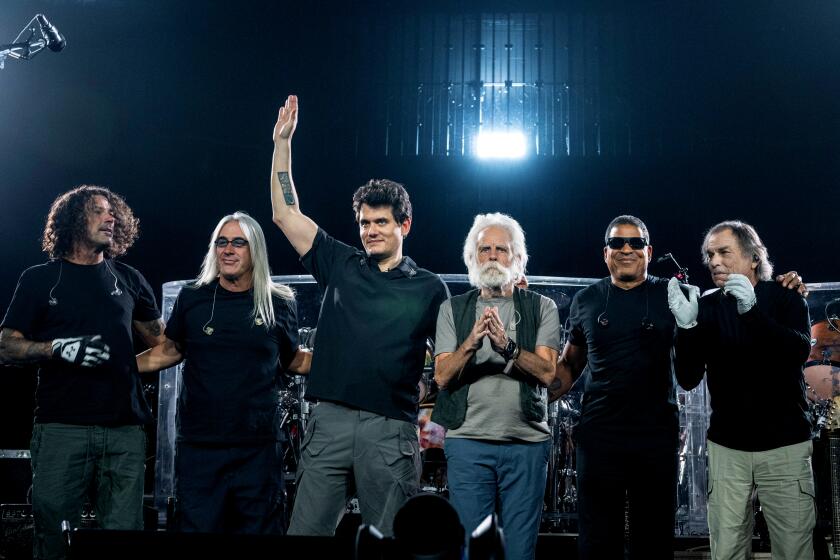RAPPING, OUT OF AFRIKA
NEW YORK — “Rap is about the gangs and the killings that went on until rap music and break-dancing helped end the violence. It brought people together.”
That’s the view of Afrika Bambaataa, 26, one of the major forces in rap music’s spread from the black and Latino gangs on the tough blocks of the southeast Bronx to international phenomenon
Though he looked unconventional with his Zulu warrior hair style, Bambaataa spoke as politely as a mild-mannered Clark Kent during a recent interview here. A top-selling rapper--and former gang leader--Bambaataa has earned a commercial success and critical respect on the strength of hits like “Planet Rock,” “Searching for the Perfect Beat” and “Unity,” a collaboration with his idol James Brown. Despite his success, people still tend to wonder exactly what Bambaataa does on his records.
“I don’t do much rapping,” he admitted. “But I help produce my records. They may be written or produced by whomever, but you can be sure I had something to do with getting the sound I want, whether it’s a certain chant, keyboard riff, drum pattern or a speed-up on the synthesizers.
“If I work with Bill Laswell of Material or Arthur Baker, I usually act as a co-producer, and I’ll bring in one of my groups to come up with a strong rap.”
Bambaataa, who oversees groups like the Soul Sonic Force, Shango, Funk Queens and Time Zone, assumes an even more low-key position on stage: “Mainly, I push my people up front. I may come out now and then and mix it up with the audience--get wild, scream, whatever. But I’m not the main focus.” Smiling enigmatically, he added, “We like to keep people confused.”
Rap’s popularization has come through films as well as records, and the Harry Belafonte-directed “Beat Street” was inspired by a 1982 article on Bambaataa in the Village Voice. It’s just one of several recent films to explore the world of rap, break-dancing and hip-hop, but Bambaataa isn’t impressed.
“Hollywood is making movies about rap and gearing them to the folks in Omaha,” he complained. “Unless you’re going to go back to the street gang era of the late ‘60s, bring it up to the present and put it on an international level you’re not going to get the true story.”
Bambaataa feels his true forte is as a disc jockey, and he’s worked everything from high school gyms to trendy New York nightspots with a record mix that includes reggae, Van Halen, “hard-core hip-hop,” and even the theme from the “Andy Griffith Show.”
“Playing the kind of records that gets a crowd to go wild is what I love, even more than doing concerts,” he says. “Music is so separate and people that want me to stick with just one kind of music, I wish they’d leave me alone.”
More to Read
The biggest entertainment stories
Get our big stories about Hollywood, film, television, music, arts, culture and more right in your inbox as soon as they publish.
You may occasionally receive promotional content from the Los Angeles Times.









